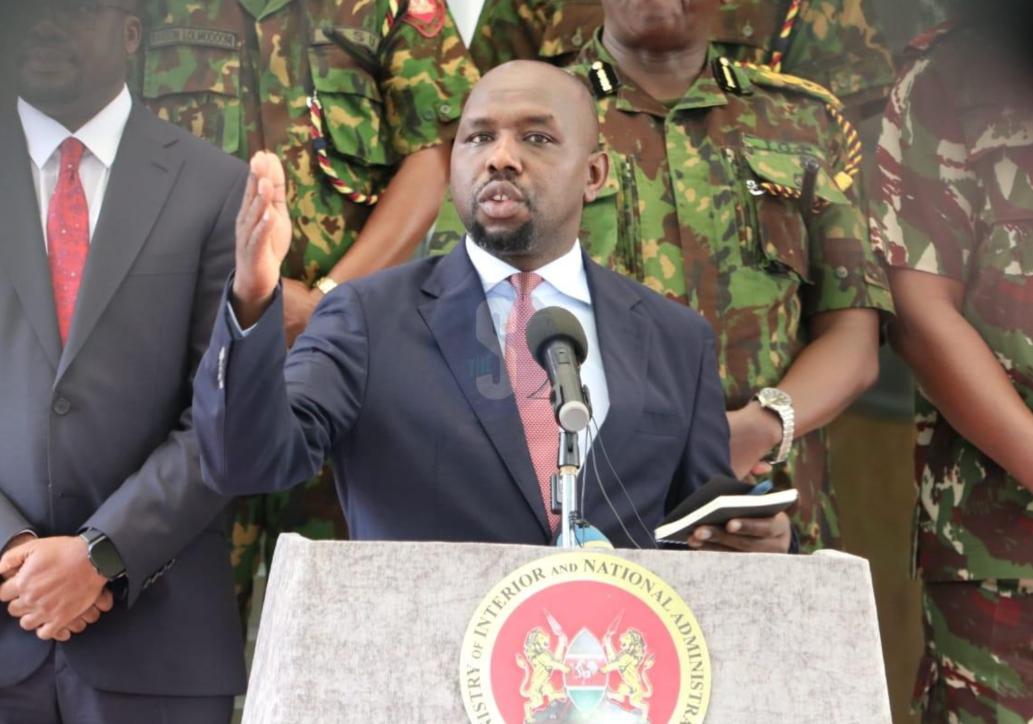
 Interior and National Administration CS Kipchumba Murkomen speaking during a press address on the state of security in the country at Harambee House, Nairobi on June 26, 2025/LEAH MUKANGAI
Interior and National Administration CS Kipchumba Murkomen speaking during a press address on the state of security in the country at Harambee House, Nairobi on June 26, 2025/LEAH MUKANGAIThe government has revealed that at least nine police stations were attacked including five that were torched during Wednesday’s protests held to commemorate the first anniversary of the Gen Z anti-government revolt.
Interior Cabinet Secretary Kipchumba Murkomen made the announcement on Thursday during a press briefing at Harambee House, outlining widespread destruction targeting both state and private property.
According to Murkomen, the attacks were part of a broader and deliberate effort to destabilise the country, with key government installations, infrastructure, and private businesses among the primary targets.
“At least nine police stations were attacked, five of which were torched — including Dagoretti, Molo, and Ol Kalau,” the CS said.
“The criminals were aiming at the officers on duty. They were after guns in the armouries and police uniforms.”
Murkomen disclosed that five firearms were stolen from Dagoretti police post in Kiambu county, while four others were destroyed at Gachui police post.
He claimed that the perpetrators, whom he referred to as “criminals hiding behind the pretence of a peaceful protest,” were coordinated and deliberate in their actions.
The protests, which began as a commemoration of the 2024 Gen Z demonstrations against government policies, quickly escalated into violent confrontations in multiple towns across the country.
Murkomen said 88 police vehicles were destroyed in the unrest.
Additionally, 27 vehicles belonging to national and county governments were vandalised, along with 65 civilian vehicles — including a school bus — that were parked within police compounds.
Government offices, including court buildings and county administration offices, were reportedly looted and set ablaze.
The CS emphasised that businesses worth billions of shillings had been lost to looting and destruction.
“The criminals targeted kiosks, supermarkets, electronic shops, hotels, and restaurants. Just like government infrastructure, business and residential premises were burnt — including one owned by the Catholic church in Embu county,” he added.
Critical infrastructure also came under attack, with roads, railway lines, electricity installations, and water facilities vandalized during the unrest.
Murkomen also claimed that the violence extended to personal property belonging to elected leaders affiliated with the government.
“Of great concern to us is that the organisers targeted homes and businesses of elected leaders who support government,” he said.


















